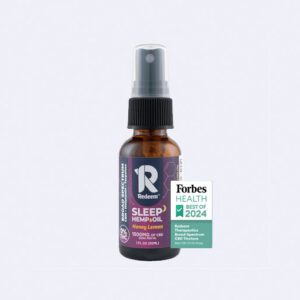Your Cart Details
By Redeem | Mar 19, 2021
World Sleep Day: Regular Sleep, Healthy Future
World Sleep Day: Regular Sleep, Healthy Future
By Redeem | Mar 19, 2021
World Sleep Day is an annual, global call to action about the importance of healthy sleep to bring cognizance to the many burdens of sleep problems, as well as the importance of healthy sleep. Research shows that your quality of life can be improved with healthy sleep. Conversely, when sleep fails, health declines, decreasing quality of life. Sound sleep is a treasured function.
WSD co-chair Dr. Lourdes DelRosso, MD, MS, Associate Professor of Pediatrics, Associate Sleep Medicine Fellowship Director at University of Washington expresses, “Sleep medicine physicians do not only treat sleep disorders, we also have a responsibility to promote sleep health. We know that regulating the time you go to sleep and wake up each day is associated with better sleep quality and length. Regular sleep is a great way to start off each day in a healthy way—paving the way for a healthier future.”
WSD co-chair Professor Fang Han, MD of The Sleep Center, Peking University People’s Hospital in Beijing, China, states, “We can apply the following principles to achieve regular sleep. First, exposure to natural daylight helps set the body clock. Second, building more activity into everyday life and keeping regular exercise. Third, switching off fully before bedtime will allow for relaxation. Finally, having positive emotions will help with a better overall health and wellbeing, as well as good sleep.”
“It is easier to achieve regular sleep when we set ourselves up for success,” explains Michael A. Grandner, PhD, MTR. “This means getting up at a regular time each day, preferably followed by bright light exposure and some movement to send a reliable daytime signal. Then, in the evening, budgeting sufficient time to wind down and detach is critical for being able to initiate sleep. Finally, maintaining good stimulus control (getting out of bed if you can’t sleep) will help build some resilience in the system. Taking these three things together—starting the morning, setting up the evening, and inoculating against nighttime disturbances—will help in the search for regular sleep.”
Three elements of good quality sleep are:
- Duration: The length of sleep should be sufficient for the sleeper to be rested and alert the following day.
- Continuity: Sleep periods should be seamless without fragmentation.
- Depth: Sleep should be deep enough to be restorative.
General Sleep Facts Presented by the World Sleep Day Committee
- Better understanding of sleep conditions and more research into the area will help reduce the burden of sleep disorders on society.
- While sporadic changes in sleep and dreaming are normal, and sleep naturally responds to environmental fluctuation, extreme factors and traumatic experiences can lead to severe changes in sleep patterns, including altered dream content or more nightmares.
- The medical benefits to youth conferred by physical activity, balanced nutrition, and quality sleep have been increasingly encouraged by medical and mental health providers.
- Sleep plays a critical role in emotional processing.
- Sleep problems constitute a global epidemic that threatens health and quality of life for up to 45% of the world’s population.
- Most sleep disorders are preventable or treatable, yet less than one-third of sufferers seek professional help.
- Stable bedtimes and rise-times have been found to be related to better sleep quality in retired older adults without the constraints of daytime work.
Facts About Sleep and Health
- Good sleep is essential to good health.
- Sleep health is best understood in the context of individual, social, and environmental demands, i.e., that good sleep health may not look the same in every situation or every individual.
- Sleep is a biological requirement for human life, alongside food, water, and air.
- Because sleep is involved with many physiologic systems, insufficient sleep duration and poor sleep quality have been associated with several adverse health outcomes…mortality, weight gain and obesity, diabetes and metabolism, inflammation, cardiovascular disease, neurocognitive functioning, mental health.
- Regular sleepers have better mood and psychomotor performance, and increased time in REM and slow-wave sleep.
- Individuals who frequently change their sleep timing, and consequently their pattern of light/dark exposure, may experience misalignment between the circadian system and the sleep/wake cycle, since the circadian clock takes time to adjust to schedule changes. Such misalignment may have an adverse effect on both cognitive function and health.
- Reduced sleep duration has been shown to cause impairments in working memory, executive function, processing speed, and cognitive throughput.
- Short sleep duration is associated with poor mental health.
- Existing evidence suggests that most US schools, especially high schools, start too early for most adolescents. Earlier start times not only promote shorter sleep duration among adolescents (who need more sleep than adults) but also do not take into account natural circadian delays that occur in adolescence. It has been proposed that delaying school start times can improve academic performance, improve mental health, and improve overall health in students.
Facts About Sleep and Covid
- Sleep is adversely affected not only in patients but also in frontline health care workers (HCW ) directly involved in caring for COVID-19 patients.
- Sleep dysfunction is common in patients admitted to the ICU (related to many factors) under normal circumstances, but is seen more severely in COVID-19 ICU patients and others as well as those in non-COVID-19 units.
- It is important to be aware of impaired sleep quality and other sleep dysfunctions not only in patients, but also in HCW, particularly frontline workers because impaired sleep may affect their judgement in patient care and timely investigation may improve sleep and the short as well as long-term consequences of sleep disruption.
- Recent studies have suggested that the sleep hormone melatonin may be beneficial for the treatment of COVID-19. Melatonin may decrease oxidative stress, inflammation and the immune response, which may be particularly important in patients with OSA in whom these pathways are already activated.
- Melatonin may also improve sleeping quality, which might also be beneficial for better clinical outcomes for COVID-19 patients.
- OSA is very prevalent worldwide, and given that the comorbidities of OSA patients are shared with those of COVID-19 patients who experience adverse outcomes it may be of great importance to ensure that OSA patients receive effective CPAP therapy if confronted with COVID-19 infection.
WSD events take place globally, but are listed together online at www.worldsleepday.org. In the past, World Sleep Day delegates have worked locally to spread awareness of sleep issues by hosting special events, translating materials, distributing booklets and pamphlets on sleep, hosting school events, press conferences and securing media coverage around the world. Delegates also created content such as public lectures and workshops, appearances on local television and radio shows, booklets, pamphlets, promotional videos, and press releases on sleep. Plan your own World Sleep Day activity for next year on www.worldsleepday.org/get-involved.
Hemp CBD Oil as a Natural Sleep Aid
Sleep is one of the most common reasons that we are starting to see people turn to CBD products. Insomnia can be a symptom of many things such as anxiety, stress, poor or irregular sleeping habits, physical illnesses, chronic pain, medications and more.
-
Broad-Spectrum CBD Oil Spray for Sleep
$49.99 — or subscribe to save 30% Select options This product has multiple variants. The options may be chosen on the product page
As you read this, your body is generating its own cannabinoids (called endocannabinoids) that will interact with one of your body’s best kept secrets—the Endocannabinoid System (ECS). Its purposes range from neuroprotection to regulation of your immune system, impacting faculties such as appetite, sleep, mood, and pain.
CBD, along with the other naturally occurring compounds in the hemp plant, can act as a catalyst in the self-healing process by initiating an increase in production of organic chemicals vital to maintaining homeostasis. Every cannabinoid and terpene present in full-spectrum & broad-spectrum CBD works to improve homeostasis, health and overall balance.
Want to try the Redeem™ difference? Shop our CBD Oil for Sleep online today.
We use cGMP compliant processes and test each lot of product for key cannabinoids and terpenes when making our CBD products. Then, we add back any compound that is below our minimum specification. If our product works for you today, it will work the same with each subsequent purchase.
At Redeem, we are only satisfied with the best, which is why we make sure all of our CBD products present the ideal amounts of CBD and terpenes in our balanced formula. Whether you’re enjoying our easy-to-use CBD tincture sprays, our new CBD topical pain cream, or our paws-itively amazing CBD oil for dogs and cats, you can be confident you are using high-quality, organically grown CBD.
Take back your health today with Redeem Therapeutics.
 CBD Gummies
CBD Gummies CBD Oils
CBD Oils CBD Capsules
CBD Capsules CBD Cream
CBD Cream CBD for Pets
CBD for Pets CBD + THC Gummies
CBD + THC Gummies Delta 8 Gummies
Delta 8 Gummies Delta 8 Capsules
Delta 8 Capsules Full Spectrum CBD Oil
Full Spectrum CBD Oil  THC Drops
THC Drops Stress
Stress

